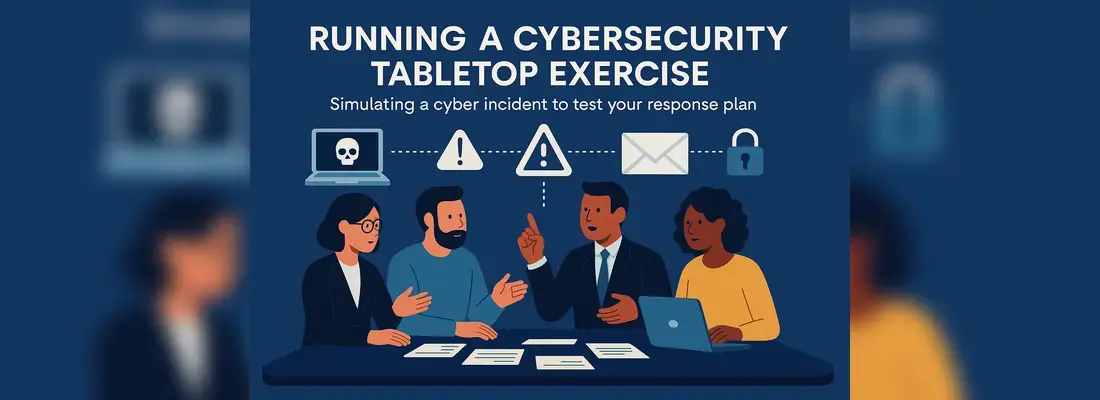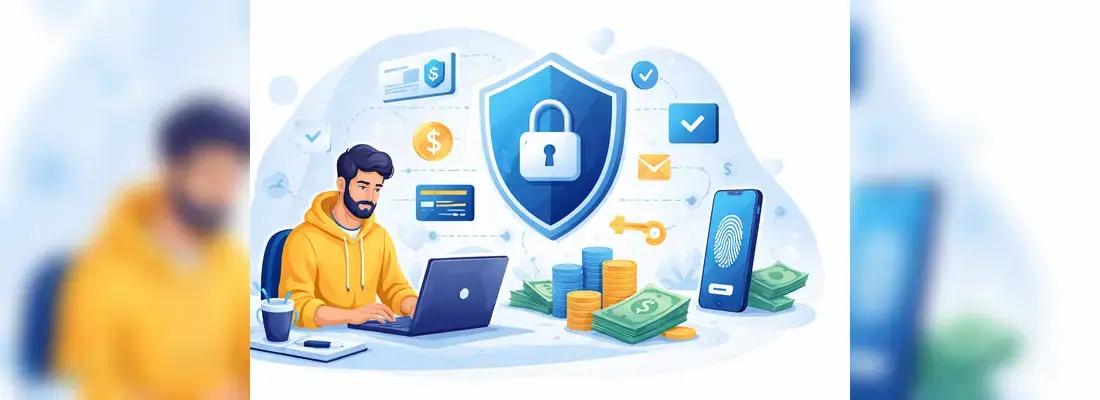Game Over: 5 Types of Cyber Attacks Threatening the Gaming World
Date: 30 October 2025

Online gaming has massively exploded in popularity in the last decade. From fast-paced shooters to multiplayer games like Valorant, players from around the world log in daily to compete, chat, and have some fun. But while gamers are levelling up, cyber criminals are doing the same thing, targeting this growing audience with increasingly clever cybersecurity attacks.
Whether you’re a casual player or a competitive pro, it’s crucial to understand how these digital dangers work and what you can do to stay one step ahead. In this article, we’ll explore the most common cybersecurity attacks in the gaming world. Let’s get started!
DDoS Attacks
One of the most common attacks in gaming is a DDoS attack, short for distributed denial of service. It works like this: someone floods your internet connection with so much fake traffic that it slows down your computer or crashes your game altogether.
Gamers hit by a DDoS attack often get booted offline mid-match, which is super frustrating, especially during competitive play. Some players even use targeted DDoS attacks to cheat, knocking out their opponents to win more easily. Live streamers and high-level players are often targets since their IP addresses can be easily exposed.
The good news is that you can protect yourself and your gaming matches by using a VPN. Using a VPN when you’re gaming hides your real IP address, making it that much more difficult for attackers to find and target you. For instance, if you play Valorant, using a VPN for Valorant can protect your identity and keep your connection stable throughout the game.
Phishing and Social Tricks
Cyber criminals often don’t need fancy tools to get their way – they just need to fool you. This is where phishing and social engineering come into the picture. These attacks trick people into voluntarily giving up their personal information, like usernames, passwords, or banking information, through means of deception.
You might get a message saying you’ve won free Robux, or that someone tried to log into your account, and you need to confirm the correct login information. These messages look pretty official, but they’re fake. The link attached sends you to a scam website, and once you enter your information, the attacker can easily take over your account.
To stay safe from such attacks, you should never share your password with anyone, even if they’re claiming to be coming from the support staff of a game you’re playing. Moreover, you should be suspicious of messages offering free items, prizes, or in-game currency. In this case, an overabundance of caution is better than realising you’ve been duped! As Vultur, Website Owner of Minerank, cautions: “Phishing works because it preys on trust. The moment you click without thinking, you’ve already given attackers the upper hand.”
Malware and Ransomware
Malware is short for malicious software: programs designed to damage your computer or steal your data. Gamers often encounter malware when downloading unofficial mods, cheats, or cracked games.
It might seem harmless: a new skin pack, a cheat tool, or an unlocked version of your favourite game. But hidden inside could be software that spies on your activity, steals your login info, or even locks your files until you pay a ransom; this is called ransomware.
Ransomware is especially dangerous. Once it infects your device, it can block access to everything, from saved games to personal files, and demand payment to unlock them. Even if you pay, there’s no guarantee the attacker will actually give your data back.
Avoid these attacks by only downloading mods or games from trusted sites, never using cheats, and using antivirus software and keeping your operating system up to date.
Account Takeovers and Identity Theft
Losing access to your gaming account can be devastating, especially if you’ve spent years building it up. Hackers often steal account credentials through phishing, leaked data from other websites, or by guessing weak passwords.
These attacks are more than just frustrating; they can cost you time, money, and your digital identity. Some gamers have lost hundreds of dollars or even entire libraries of games.
You must always use strong and unique passwords for each game or platform to prevent this. Moreover, you should enable 2FA to boost your account security wherever available. And lastly, remember never to reuse old passwords, especially if they’ve been leaked in past data breaches.
MiTM Attacks on Public Wi-Fi
Gaming on the go? Be careful where you connect! Public Wi-Fi networks, such as those available in cafes, malls, amusement parks, airports, schools, and other community hubs, are often unprotected, making them hotspots for hackers.
They lurk on the same network and launch a man-in-the-middle (MITM) attack, where they intercept your data as it travels across the network. They could steal your login credentials, messages, or even payment details without you knowing. You won’t see the difference, but your data may be exposed behind the scenes.
The safest way to avoid such cyber attacks is to use a VPN when relying on public Wi-Fi. Connecting to a VPN encrypts your internet connection, making it unreadable to anyone trying to spy on it.
In-Game Scams and Marketplace Fraud
Modern games often have in-game economies: places where players trade, sell, or buy items using either real money or virtual currency. Unfortunately, this also opens the door to in-game scams and marketplace fraud.
For example, someone might promise to give you a rare item or a pile of Robux in exchange for something you own, but once you send your side of the deal, they magically disappear. In other cases, you might be directed to fake websites that look like official game stores or trading hubs. These sites often ask you to log in or share personal details, which are then stolen and used to hijack your account or make unauthorised purchases.
To stay safe, only use official in-game marketplaces or trading platforms approved by the game developer. Be cautious of any trade that feels rushed, overly generous, or involves outside links. And never enter your login credentials or payment information on third-party sites, no matter how convincing they may look.
Don’t Let Hackers Steal Your High Score
Gaming should be fun, not stressful. But the truth is, the online world can be really dangerous if you’re not careful enough. From DDoS attacks to malware and phishing scams, cyber threats are everywhere, especially in popular games like Valorant, Fortnite, and Minecraft.
The best defence is awareness. Understand the risks, use strong security tools like VPNs and antivirus software, and never share your information with strangers. You can enjoy your favourite games without worrying about getting hacked or losing access to your account by taking a few simple steps.
Play smart, stay safe, and game on.







.webp)
